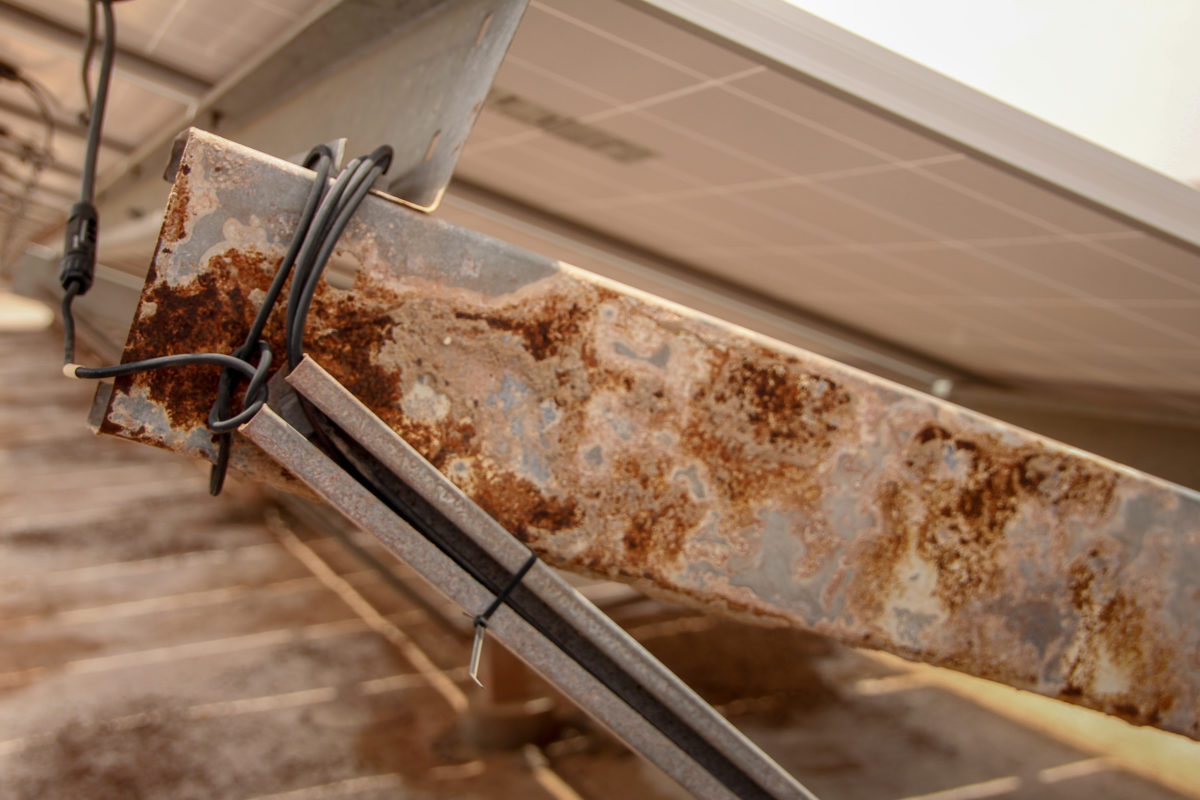From the April edition of pv magazine.
India’s solar growth has been spectacular, quickly propelling the nation to solar superpower status. The country plans to put more than 250 GW of solar into its generation pipeline in the next 10 years.
A potential thorn in the side of the solar advance, however, could prove to be quality, or rather, the lack of it. If India is to achieve its solar goals, it is imperative the components used to construct the huge green energy infrastructure are of top-notch quality and exceptionally reliable in all conditions during working lives of 25 years or more.
“Indian project developers rely on ‘self-defined’ quality criteria to import more than 90% of modules for the domestic industry,” says Ivan Saha, chief technology officer at module manufacturer Vikram Solar. “Since modules contribute to more than 55% of the capex [capital expenditure] required to build a solar plant, the risk associated with poor module quality is therefore significant – especially so as the outflow in forex [foreign exchange] due to module imports is several billion dollars every year.”
With more than 10 GW per year in installations, and some of the most competitive tariffs in the world, a marginal drop in performance or the occurrence of quality-related issues can be catastrophic in the context of projects in India.
Government initiatives
Gangadhara Rao, of the Ananyavijaya Consultancy, says a number of policy guidelines have been handed down from government agencies regarding PV quality. Examined in more detail, India’s Ministry of New and Renewable Energy has established the following guidelines:
- lab policy for the testing, standardization and certification of the renewable energy sector;
- guidelines to conduct solar PV module testing (for quality and fire safety aspects) in test labs; and
- Bureau of Indian Standards (BIS) registration for solar equipment.
As a result of these guidelines, all the modules supplied in India since April 1 should be BIS certified. The three major aspects to be adhered to by PV module manufacturers are: mandatory in-country testing of PV modules by a laboratory recognized by BIS, which will also be subject to regular audit by BIS; registration with BIS, where manufacturers will be given a unique number for identification; and a surveillance mechanism whereby panels can be tested at random from manufacturing sites to check whether they comply with BIS requirements.
Challenges remain
According to Vikram Solar’s Saha, while BIS certification is an honest attempt to mitigate the risks associated with poor quality, there are several reasons why it is falling short.
Firstly, the BIS guidelines are a set of test protocols broadly similar to International Electrotechnical Commission (IEC) testing requirements. The sample size, test criteria and sequence are exactly the same. Thus, manufacturers selling modules in India have to go through the same test twice, once for IEC-type testing and again for BIS testing. Completion of the tests typically takes three months.
Secondly, there is an acute lack of testing facilities in the country which is leading to long queues of manufacturers awaiting certification. Currently, there are four testing facilities in India: those of TÜV, UL, the National Institute of Solar Energy and Hi Physix.
Thirdly, Indian geographical and climatic conditions vary greatly. While the north is dry and hot, conditions in the south and east are hot and humid. The failure patterns of modules vary according to climatic conditions. Ideally, BIS certification should include additional tests over and above IEC-type testing to qualify modules for India-specific climatic conditions.
Finally, the cost of BIS certification for every combination of bill of materials (BOM) is Rs2 million ($29,000). The whole process of BIS certification for at least one product type with each BOM leads to an inordinately high certification cost beyond the reach of many manufacturers.
The way forward
According to Saha, what India needs is a strong government effort to drive quality in a more holistic manner, rather than blindly following the BIS certification route. The development of new standards for module testing related to India-specific climate conditions is crucial, he says.
“Close monitoring of quality control processes on the shop floor [of] the Indian domestic manufacturer [sites] is an assured way to confirm 100% quality,” says Saha. “Specific quality plans for mass manufacturing need to be followed and deployed on shop floors in order to make this happen.
“Finally, a sure way to support the domestic solar manufacturing industry is to develop a robust and sustainable domestic supply chain to provide quality materials for module manufacturing at competitive rates.”
This content is protected by copyright and may not be reused. If you want to cooperate with us and would like to reuse some of our content, please contact: editors@pv-magazine.com.









By submitting this form you agree to pv magazine using your data for the purposes of publishing your comment.
Your personal data will only be disclosed or otherwise transmitted to third parties for the purposes of spam filtering or if this is necessary for technical maintenance of the website. Any other transfer to third parties will not take place unless this is justified on the basis of applicable data protection regulations or if pv magazine is legally obliged to do so.
You may revoke this consent at any time with effect for the future, in which case your personal data will be deleted immediately. Otherwise, your data will be deleted if pv magazine has processed your request or the purpose of data storage is fulfilled.
Further information on data privacy can be found in our Data Protection Policy.